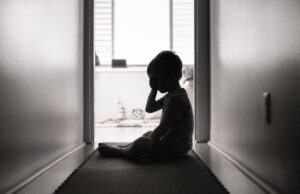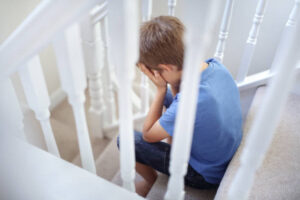A recent survey found that most adults in the UK believe that childhood emotional abuse can have a lasting impact, affecting people well into adulthood.
 But, despite acknowledging the seriousness of childhood emotional abuse, 1 in 6 adults could not correctly identify the signs.
But, despite acknowledging the seriousness of childhood emotional abuse, 1 in 6 adults could not correctly identify the signs.
The YouGov survey, commissioned by the NSPCC, found that a huge 94% of responding UK adults believe that emotional abuse in childhood could have a lasting psychological effect well into adulthood.
However, on average, almost 1 in 6 respondents (17%) could not correctly identify examples of emotional abuse.
NSPCC: “concerning” that adults cannot spot emotional abuse
 The NSPCC has published the “concerning” findings as part of its “vital” new campaign, Listen up, Speak up, which aims to inspire a million people to take action to help keep children and young people safe.
The NSPCC has published the “concerning” findings as part of its “vital” new campaign, Listen up, Speak up, which aims to inspire a million people to take action to help keep children and young people safe.
The research presented respondents with a series of behaviours and asked them to correctly identify what would be deemed as emotional abuse.
Some of the scenarios where many adults failed to correctly identify emotional abuse were:
- Being overly controlling of a child’s life (25%)
- Never showing any emotions in interactions with a child (26%)
- Pushing a child too hard or not recognising their limitations (27%)
Most respondents (66%) had also not completed any training or done any research to help them recognise the signs of emotional abuse.
The NSPCC explains that emotional abuse is any type of abuse that involves the continual emotional mistreatment of a child. It can be difficult to recognise, as it often has limited external signs.
Childhood emotional abuse is a significant issue
Childhood emotional abuse is a prevalent issue, with figures suggesting that 1 in 15 children in the UK will experience emotional abuse.
 In fact, the NSPCC’s confidential helpline for young people, Childline, delivered nearly 3,000 counselling sessions to children and young people where emotional abuse was the main concern last year. This represents a 5% rise on the previous year (2022-23).
In fact, the NSPCC’s confidential helpline for young people, Childline, delivered nearly 3,000 counselling sessions to children and young people where emotional abuse was the main concern last year. This represents a 5% rise on the previous year (2022-23).
In just over half of these sessions, children identified being shouted at or verbally abused as a top sub-concern, with being criticised, humiliated and called names being the second most common sub-concern.
The NSPCC says that, over time and without the right support, children subjected to emotional abuse can experience long-lasting effects on their social, emotional and physical health.
The NSPCC’s Listen up, Speak up campaign provides a free online resource featuring advice and guidance to help people spot the signs that a child might be at risk and know the steps to take to help.
The “devastating impact” of emotional abuse
 Local NSPCC teams are also delivering free workshops in schools, businesses and community organisations across the UK.
Local NSPCC teams are also delivering free workshops in schools, businesses and community organisations across the UK.
The CEO of the NSPCC, Chris Sherwood said it was “concerning” that a sixth of adults lacked understanding of what emotional abuse was, and what it could look like.
He explained:
“We know that emotional abuse can have a devastating and long-lasting impact on children’s wellbeing and development, affecting their mental health and relationships well into adulthood.
“The NSPCC is here to support any child who has experienced any kind of abuse. We are also fully committed to creating a nation of adults who are passionate about preventing harm from happening to a child. With our Childline service delivering almost 3,000 counselling sessions about emotional abuse last year alone, we understand the scale and seriousness of this issue across the UK.
“That’s why Listen up, Speak up is so vital. In just ten minutes, we can help adults learn to recognise both the obvious and subtle signs a child might be at risk and take action to support them. Every adult has the power to make a difference.”
Vital training for those working with children
 First Response Training (FRT) is a leading national training provider delivering courses in subjects such as health and safety, first aid, fire safety, manual handling, food hygiene, mental health, health and social care, safeguarding and more.
First Response Training (FRT) is a leading national training provider delivering courses in subjects such as health and safety, first aid, fire safety, manual handling, food hygiene, mental health, health and social care, safeguarding and more.
They work with a large number of early years and childcare providers, as well as schools, colleges, and children’s services.
Their courses include Safeguarding Children, Autism Awareness, and Understanding Domestic Abuse.
A trainer from FRT says:
“Sadly, for many children and young people, home is not the safe and happy place it should be, and those who are supposed to love and care for them most in the world can instead subject them to serious emotional and psychological harm.
“It’s really important that any children experiencing emotional abuse receive help and support to help them move forward from their experiences.”
For more information on the training that FRT can provide, please call them today on freephone 0800 310 2300 or send an e-mail to info@firstresponsetraining.com.
